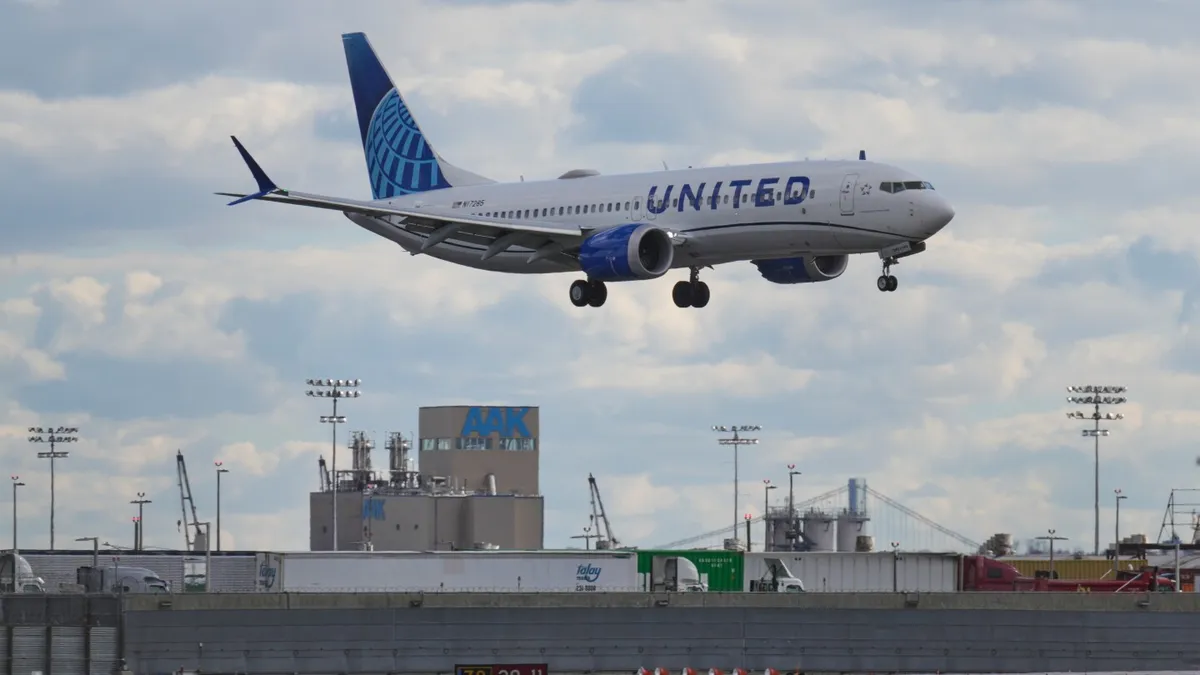
On Thursday, U.S. airlines began to cancel hundreds of flights in response to a directive from the Federal Aviation Administration (FAA). This order mandates a reduction in air traffic at the nation’s busiest airports due to the ongoing government shutdown that started on October 1. By the end of Thursday, nearly 500 flights scheduled for Friday had already been canceled, according to FlightAware, a website that monitors flight disruptions. This represents a staggering increase, as it is more than four times the number of cancellations reported on Thursday alone.
The FAA has instructed airlines to implement a 10% reduction in their flight schedules at 40 of the busiest airports across more than two dozen states. This disruption is poised to affect not just major airports, but also many smaller ones. As a precaution, some travelers began altering or canceling their plans on Thursday, anticipating potential travel issues. Airlines are currently in the process of determining which flights to eliminate, leaving many weekend travelers anxious about the status of their flights.
The affected airports include critical connecting hubs and popular tourist destinations such as Atlanta, Denver, Orlando, Miami, and San Francisco. Major cities like New York, Houston, and Chicago will see multiple airports impacted by these flight reductions.
According to sources familiar with the FAA's plans, airlines will start implementing the cuts with an initial 4% reduction on Friday, gradually increasing to 10% in the following days. United Airlines has announced it will cut 4% of its flights over the weekend based on FAA guidance. As of midday Thursday, the FAA had not released an official order and did not respond immediately to inquiries regarding implementation details.
Some airlines are focusing on reducing routes to and from small and medium-sized cities. Industry analyst Henry Harteveldt commented, “This is going to have a noticeable impact across the U.S. air transportation system.” As the holiday season approaches, this situation has already forced travelers like Fallon Carter to reevaluate their plans; she canceled her flight from New York to Tampa, fearing she might not make it back in time for her best friend's wedding.
The FAA's decision to reduce air traffic comes after reports of increased strain on air traffic controllers who are working without pay during the shutdown. The FAA aims to alleviate pressure on these essential workers, many of whom have been forced to call in sick due to financial stress. The agency noted that it would reduce air traffic by 10% across “high-volume” markets to ensure safety as controllers continue to face staffing challenges.
Air traffic controllers have been working unpaid since the shutdown began, with many required to work mandatory overtime. The FAA has already delayed flights when staffing shortages occur at airports. Passengers can expect to receive notifications about cancellations starting Thursday, and airlines are attempting to minimize the impact on travelers. Major carriers like United, Delta Air Lines, and American Airlines are offering refunds for canceled flights, even if tickets were non-refundable.
The flight reductions could also disrupt package deliveries, particularly affecting FedEx in Memphis, Tennessee, and UPS in Louisville, Kentucky—both of which are major distribution centers. Estimates suggest that as many as 1,800 flights could be canceled daily, impacting over 268,000 passengers, according to the aviation analytics firm Cirium.
While airlines are accustomed to dealing with large-scale cancellations due to severe weather, this situation presents a unique challenge as the cuts will persist indefinitely until safety conditions improve. FAA Administrator Bryan Bedford remarked, “We’re in new territory in terms of government shutdowns.”
The ongoing shutdown is causing significant strain on the travel system, undermining confidence in the U.S. air travel experience. U.S. Travel Association President and CEO Geoff Freeman stated that the shutdown is creating unnecessary disruptions for travelers. Frequent flyer Kelly Matthews from Michigan expressed her understanding of the situation, stating that federal workers cannot be expected to continue working without pay for an extended period.
The situation has worsened, with reports indicating that at least 39 air traffic control facilities faced staffing limits over the recent weekend, a significant increase compared to average weekends prior to the shutdown. As travelers adjust to these unprecedented challenges, it remains crucial to stay informed about potential flight changes and cancellations.